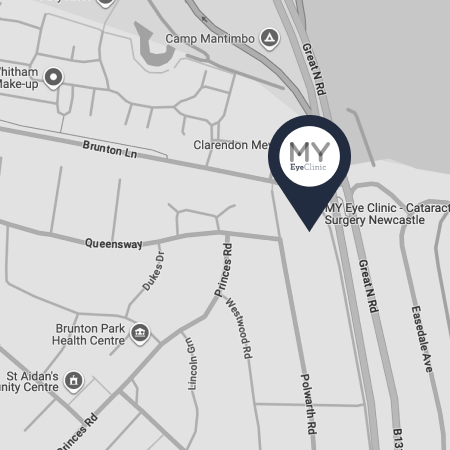
What tests are done before laser eye surgery?
If you’re thinking about laser eye surgery, you’ve probably wondered: what actually happens at the first consultation? One of the most important steps before surgery is the detailed eye tests we carry out. These tests make sure your eyes are healthy, your prescription is stable, and that the procedure is safe and likely to give you the results you want.
At My Eye Clinic in Gosforth, we never rush this stage. Careful testing is the key to success and it’s also how we keep laser eye surgery as safe and predictable as possible.
Let’s walk through the tests you can expect before surgery.
Why are pre-surgery tests so important?
Laser eye surgery isn’t right for everyone. That’s why no reputable clinic will take shortcuts at this stage. The pre-op tests:
- Confirm whether you’re suitable
- Rule out eye conditions that could affect results
- Allow your surgeon to design a treatment tailored to your unique eyes
- Give you confidence that you’re making an informed choice.
By the end of your consultation, you should know if laser eye surgery is safe for you, and what results you can realistically expect.
Common tests before laser eye surgery
- Vision and prescription check
This is similar to a standard eye test but more detailed. We measure how well you see at different distances and confirm the exact prescription you currently wear in glasses or contact lenses. - Corneal thickness measurement
The cornea is the clear front surface of your eye, and it’s the part reshaped during LASIK, LASEK, or TransPRK. We use a test called pachymetry to measure its thickness. If it’s too thin, some procedures may not be suitable. - Corneal mapping (topography)
This creates a detailed map of the shape and curve of your cornea. It helps spot conditions like keratoconus (where the cornea becomes irregularly shaped), which would rule out laser eye surgery. - Pupil size assessment
We check your pupils in both light and dark conditions. This helps us plan your treatment and reduce the risk of glare or halos at night. - Tear film evaluation
Dry eye can affect healing after surgery. We measure the quality and quantity of your tears to see if you’ll need treatment for dryness before or after surgery. - Eye pressure measurement
High eye pressure can be a sign of glaucoma. We screen for this to make sure your eyes are healthy before going ahead. - Retina and eye health check
Your surgeon will examine the back of your eye to rule out problems like retinal tears, macular disease, or early signs of other conditions. - Prescription stability check
We’ll ask about your prescription history. Your prescription should be stable for at least 12 months before surgery, otherwise results may not last.
How long does the consultation take?
A full consultation usually lasts between one and two hours. This gives time for all the tests, as well as a detailed conversation with your surgeon. You’ll be able to ask questions, talk about your lifestyle needs, and go over the results together.
What happens if I’m not suitable?
Not everyone is suitable for laser eye surgery. Some people may be better candidates for other vision correction options, such as lens replacement. At My Eye Clinic, we only recommend what’s right for your eyes.
If you’re not suitable, you won’t be pressured into going ahead, you’ll simply leave with clear information about your options.
Why this stage matters most
The consultation isn’t just about whether you can have laser eye surgery — it’s about whether you should. By doing these tests, your surgeon ensures you get safe, personalised care and the best possible results.
Next steps
Curious to find out if you might be suitable?
Take our free self-test, it only takes a minute and gives you an instant idea of whether laser eye surgery could be right for you.
Find out if you are suitable for vision correction
Vision correction isn’t suitable for everyone.
The first step is to take the self test so you can find out whether you can benefit.




